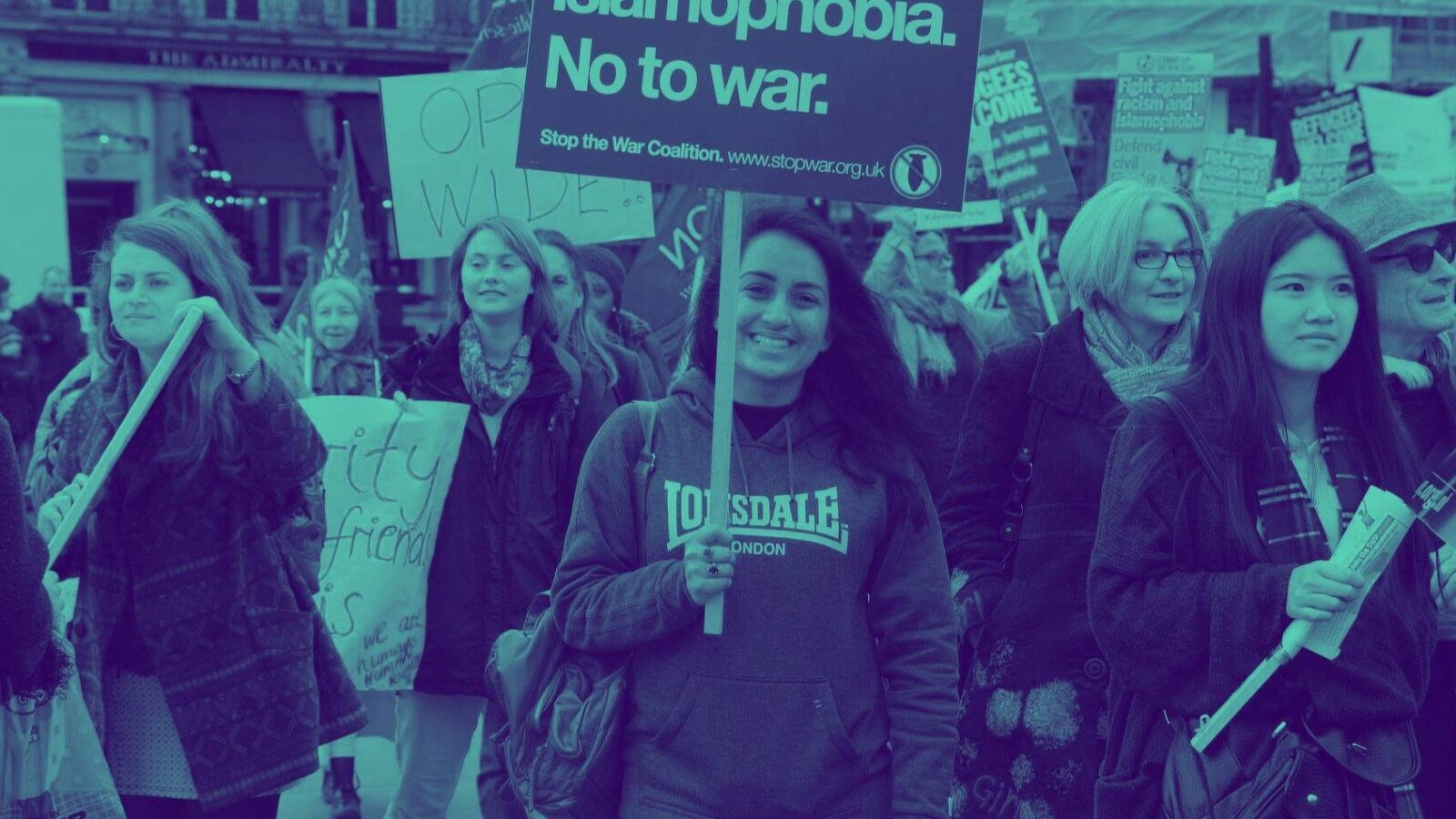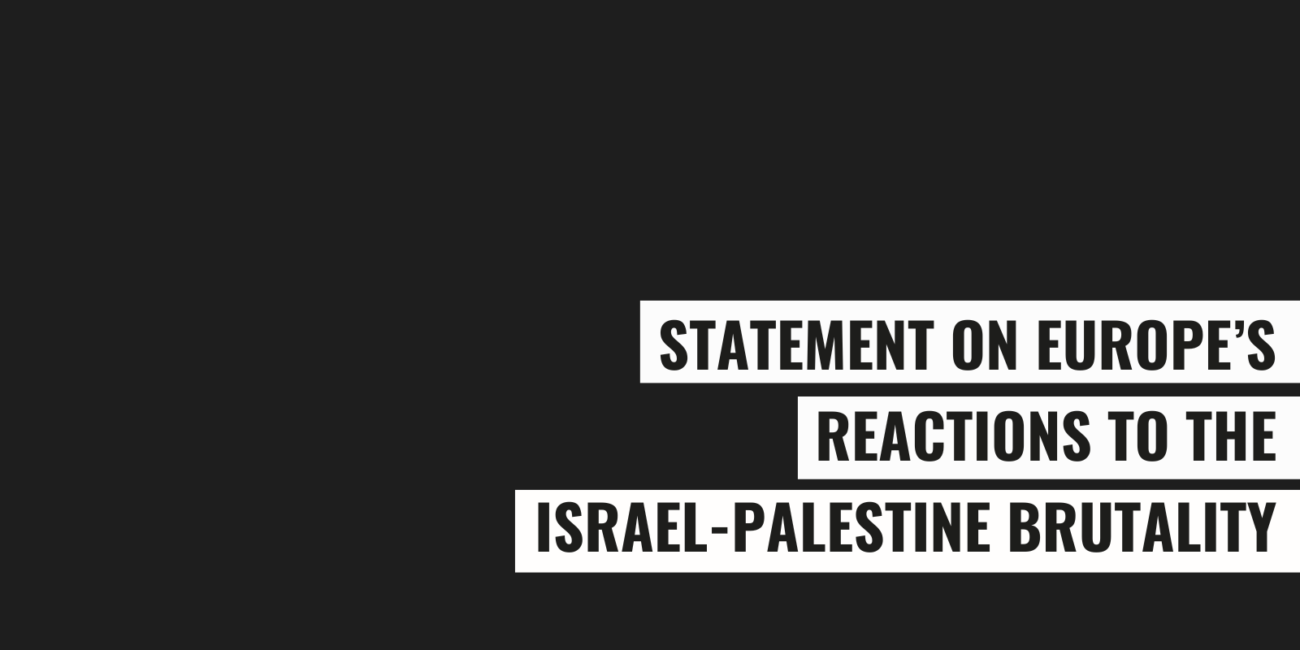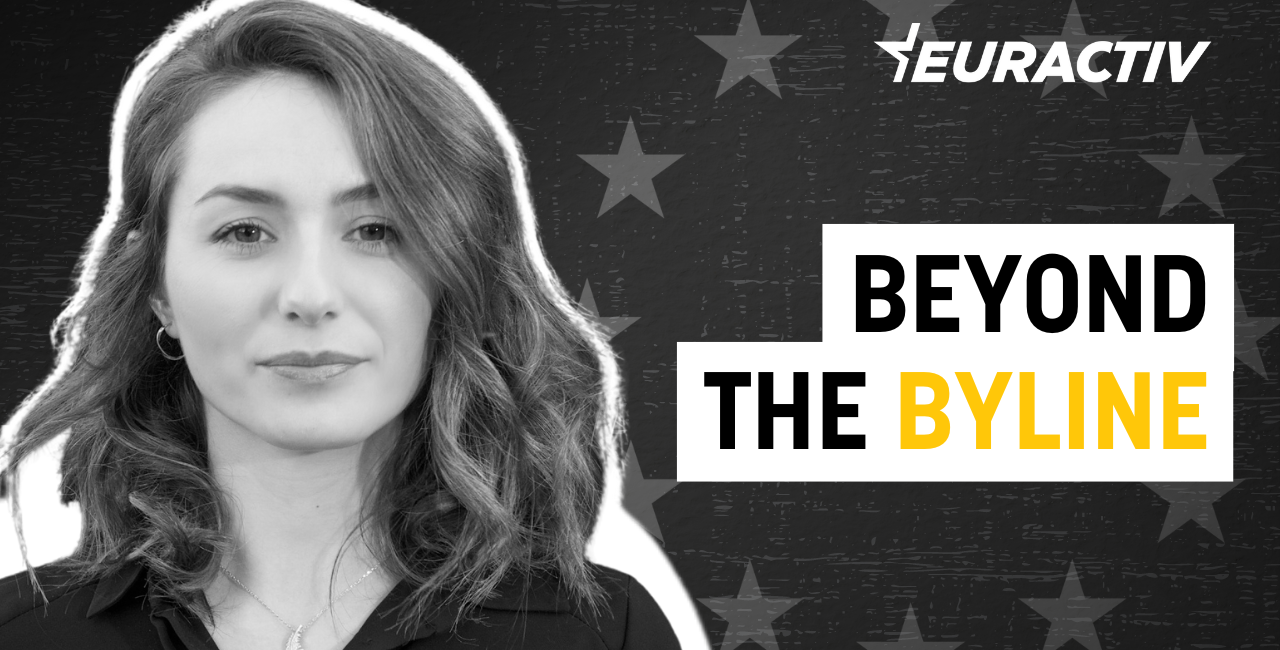ISLAMOPHOBIA

Muslims or those perceived to be Muslim suffer from discrimination, stigmatisation and exclusion in all areas of life such as employment, education, vocational training, services and political participation, but also from racist violence and speech, especially on the internet. Islamophobia is a specific form of racism that must be tackled.
Read More
Most EU countries do not collect data disaggregated by religion in censuses, so it is impossible to know exactly how many Muslims live in Europe. However, research based on proxies has estimated that around 19 million Muslims live in Europe, which represents 6% of the total European population.
Islamophobia is a specific form of racism that refers to acts of violence and discrimination, as well as racist speech, fuelled by historical abuses and negative stereotyping and leading to exclusion and dehumanisation of Muslims, and all those perceived as such. Islamophobia is a form of racism in the sense that it is the result of the social construction of a group as a race and to which specificities and stereotypes are attributed, in this case real or perceived religious belonging being used as a proxy for race. Consequently, even those who choose not to practice Islam but who are perceived as Muslim – because of their ethnicity, migration background or the wearing of other religious symbols – are subjected to discrimination. Islamophobia has nothing to do with criticism of Islam. Islam, as a religion, as an ideology, is subject to criticism as any other religion or ideology.
ENAR’s yearly shadow reports on racism in Europe have provided evidence of discrimination and stigmatisation of Muslims and in particular as the result of hate crime, racial profiling, counter-terrorism policies, discriminatory laws preventing access in some areas of life like education and employment, and populist discourses by politicians and in the media.
A European Union Agency for Fundamental Rights’ survey indicates that on average 1 in 3 Muslim respondents stated that they had experienced discrimination in the past 12 months. Those Muslim respondents who had been discriminated against stated that they had experienced, on average, 8 incidents of discrimination over a 12-month period.
Muslim minorities in Europe are increasingly being portrayed as not belonging to European societies and as threats to the European way of life. The myth of the “Islamisation” of Europe is being fuelled by xenophobic and populist parties across Europe.
Islamophobia is a gendered form of racism. Muslim women are disproportionately affected by Islamophobia as a result of multiple grounds of discrimination, especially if they wear religious clothing or symbols. They experience multiple discrimination on the basis of gender, religious, ethnicity, social class, migration background… In some countries, laws impose a general prohibition on religious and cultural symbols and dress, disproportionately impacting women wearing the headscarf. These policies are discriminatory and such a prohibition negates the right to freedom of expression of those women who choose to wear religious and cultural symbols and dress.
Counter-terrorism policies have had a disproportionate impact on minority communities, especially Muslims and migrants. Ethnic profiling and arbitrary deprivation of liberty of innocent Muslims are fuelling a sense of insecurity, injustice and defiance toward authorities, making these security measures counterproductive in the long term. Adding to the security policies, stigmatising and discriminatory language has increased, representing Muslims as the enemy from within that needs to be controlled and policed.
EU laws against racism and discrimination already exist – including theRacial Equality Directive and the Framework Decision on Combating Racism and Xenophobia. However, the specific direct and structural discrimination faced by Muslims in fields such as of justice, policing, employment and education and increasing numbers of racist attacks imply that existing legal instruments and policy measures are not enough to ensure equality of outcome. These must be reinforced by a comprehensive effort by policy makers to tackle Islamophobia and promote full equality and inclusion.
What are we doing about it?
We call for national strategies to combat Islamophobia and promote the inclusion of Muslims. The framework will serve as a means to ensure that Member States take policy measures to combat Islamophobia and protect the rights of Muslims in Europe.
The following elements should be put in place by EU Member States:
![]() Recognition: Politically recognise Islamophobia and the consequences of past abuses and stereotypes on Muslims today.
Recognition: Politically recognise Islamophobia and the consequences of past abuses and stereotypes on Muslims today.
![]() Equality data collection: Collect comparable sets of data on racism, discrimination and racist crime, disaggregated by ethnicity and religion, in respect to EU data protection safeguards, and in order to support equality, social inclusion and non-discrimination policies.
Equality data collection: Collect comparable sets of data on racism, discrimination and racist crime, disaggregated by ethnicity and religion, in respect to EU data protection safeguards, and in order to support equality, social inclusion and non-discrimination policies.
![]() Participation and empowerment: Involve Muslim communities in the design, implementation and evaluation of policy initiatives. Support for the full participation of Muslims in public life, stimulation of their active citizenship and development of their human resources are therefore essential.
Participation and empowerment: Involve Muslim communities in the design, implementation and evaluation of policy initiatives. Support for the full participation of Muslims in public life, stimulation of their active citizenship and development of their human resources are therefore essential.
We engage in policy discussions on counter-terrorism and security to ensure that counter-terrorism measures do not have a disproportionate impact on Muslim communities and do not restrict their fundamental rights.
We work to debunk myths and counter stereotypes on Muslim communities and are calling on States to challenge stereotypes through public awareness raising campaigns and support to community-led initiatives.
QUICK
FACTS
11% of Muslim respondents to a FRA survey were victims of racially motivated crime at least once in the 12 months preceding the survey
1 in 4 Muslims have been stopped by the police in the previous 12 months
There was a 110% increase in reported Islamophobic incidents between January 2014 and January 2015
News & Resources
Muslim
women, forgotten women?
Forgotten Women: the impact of Islamophobia on Muslim women
This project aims to document the disproportionate effect of Islamophobia on women and develop alliances between the anti-racism and feminist movements in order to better address the intersectional discrimination affecting Muslim women.
The project took place in 8 countries, chosen to get a representative picture of the situation of Muslim women in the European Union: Belgium, Denmark, France, Germany, Italy, Netherlands, Sweden and United Kingdom.
The project aims to:
- Document the disproportionate effect of Islamophobia on Muslim women
- Provide analysis to improve the implementation of equality law in cases of discrimination against Muslim women
- Counter stereotypes about Muslim women and promote positive messages
- Foster cross-group partnership and develop alliances between the anti-racist and feminist movements in order to better address the intersectional discrimination affecting Muslim women (gender, religion, race and class)
- Disseminate the findings of the research in advocacy settings (European and national), communication activities and lawyers’ workshops
Report: Forgotten women: The impact of Islamophobia on Muslim women
Read the European report and the key findings
Read the press release
Factsheets on national findings:
![]() Belgium: French – Dutch – English
Belgium: French – Dutch – English
![]() Denmark: Danish – English
Denmark: Danish – English
![]() France: French – English
France: French – English
![]() Germany: German – English
Germany: German – English
![]() Italy: Italian – English
Italy: Italian – English
![]() The Netherlands: Dutch – English
The Netherlands: Dutch – English
![]() Sweden: Swedish – English
Sweden: Swedish – English
![]() United Kingdom
United Kingdom
Full national reports
![]() National report for Belgium
National report for Belgium
![]() National report for France
National report for France
![]() National report for Germany
National report for Germany
![]() National report for Italy
National report for Italy
![]() National report for the Netherlands
National report for the Netherlands
![]() National report for Sweden
National report for Sweden
![]() National report for the United Kingdom
National report for the United Kingdom
Debunking myths on women’s rights, Muslim women, feminism and Islamophobia in Europe
Given the continued debates and misconceptions around both Muslim women and feminism, ENAR is debunking some of the more common stereotypes about feminism and Muslim women in Europe in order to promote a shared understanding of equal treatment in a diverse society.
![]() Read the leaflet
Read the leaflet
![]() Download the visuals
Download the visuals
Background information about the project
![]() Short presentation of the project
Short presentation of the project
![]() Snapshots from the 8 national round tables on Islamophobia and gender equality
Snapshots from the 8 national round tables on Islamophobia and gender equality
![]() Interview with Intissar Kherigi, ENAR Board member, on ENAR’s Forgotten Women project
Interview with Intissar Kherigi, ENAR Board member, on ENAR’s Forgotten Women project
![]() Meet the project research team
Meet the project research team
Symposium
ENAR’s symposium “Muslim women, forgotten women? Understanding the gender dimension of Islamophobia” took place on 26 May 2016 in Brussels.
FAQs
Who are Muslim Europeans?
Muslims have been present in Europe since the 7th century. Diplomacy and trade exchanges have always existed between the Muslim world and Europe. After World War II, a large immigrant labour force coming primarily from Mediterranean countries with majority Muslim populations were recruited to support rebuilding efforts in Europe. Nowadays, Muslim communities are as diverse as European countries are. Different ethnic and cultural origins, nationalities, political views, social classes mean that there is no such thing as one ‘Muslim community’. Muslims refer to different understandings and lectures of the Islamic literature and to a great variety of theological, juridical and spiritual schools, obedience and traditions. Muslims are spread across the spectrum of potential religious practice: from total non-practice to intensive practice – the level of practice evolving also during a life time.
How many Muslims are there in Europe?
Most EU countries do not collect data disaggregated by religion in censuses, so it is impossible to know exactly how many Muslims live in Europe. However, research based on proxies has estimated that around 19 million Muslims live in Europe, which represents 6% of the total European population. Populist and far-right parties tend to increase this number to support the argument of an “islamisation of Europe”. Recent public opinion surveys have shown that the number of European Muslims is often overestimated. A 2014 survey found that French respondents thought that 31% of their compatriots were Muslim, while actual figures show that only 8% of French residents are Muslims – including non-practising Muslims. UK respondents thought there were 21% Muslims in Britain, when they constitute only 5 % of the British population.
What is Islamophobia? How can it be a form of racism as Islam is not a race?
Islamophobia is a specific form of racism that refers to acts of violence and discrimination, as well as racist speech, fuelled by historical abuses and negative stereotyping and leading to exclusion and dehumanisation of Muslims, and all those perceived as such. Islamophobia can also be the result of structural discrimination. Islamophobia is a form of racism in the sense that it is the result of the social construction of a group as a race and to which specificities and stereotypes are attributed. These characteristics are considered genetic (for instance “Islam is violent, thus Muslims and their kids are violent”). Consequently, even those who choose not to practice Islam but who are perceived as Muslim are subjected to discrimination. Islamophobia has nothing to do with criticism of Islam. Islam, as a religion, as an ideology, is subject to criticism as any other religion or ideology.
Are all Muslims violent, terrorist extremists?
While there is no single interpretation of Islam, renowned Islamic authorities across the world have repeatedly affirmed that terrorism cannot be justified by the teachings of their religion, which aims to promote justice and peace. Muslim leaders and scholars often speak out against terrorism and seek to counter misinterpreted or twisted teachings based on a theology of violence and death that fringe groups use to justify their violent actions. Most Muslims feel as threatened as anyone else by these violent extremists who say they act in the name of Islam. Muslims have been the target of terrorist attacks too, and are in no way protected because of their religion. To date, worldwide, Muslims suffer the highest death toll due to jihadist terror groups. Some of the victims of the Paris attacks were Muslims.
If all Muslims are not terrorists, are all terrorists Muslims?
A survey conducted by the Center for Research and Globalization found that the terrorists acts perpetrated by Muslim extremists constitute only 2.5% of all terrorist attacks on U.S. soil between 1970 and 2012. In 2013, 152 terrorist attacks occurred in Europe with only 1 attack being religiously motivated while 84 were motivated by ethno-nationalist or separatist beliefs. The massive media coverage of Muslims extremists’ acts contributes to feeding the myth that all terrorist acts are perpetrated by Muslims. Far-right movements are also a form of extremism present in Europe, which poses a similar threat to society and peaceful coexistence.
Do Muslims agree with the terror attacks in Paris, Brussels and elsewhere?
Some Muslims have felt offended by some of Charlie Hebdo’s cartoons. But this in no way means that they support the deadly attacks. Most Muslim organisations publically condemned these murders, recalling that words should be countered with words, and that Islam shouldn’t be used as a way to justify terror attacks. Many of these organisations were present on 11th January to peacefully march in Paris and other French and European capitals. A number of European Muslim intellectuals have also insisted on the importance of freedom of expression
Are European Muslims increasingly anti-Semites?
Anti-Semitism is not new in Europe and is still very much present across European society. Muslims are not immune to anti-Semitism. Some Muslims are influenced by theological discourses rooted in anti-Semitism, far-right ideologues, negationists and those spreading confusion between Israel and Jews in general. However, a recent Pew Research Center study shows that negative opinions on Jews are growing in Europe, reaching 25 % of unfavourable opinion in Germany, where only 6 % of the population is Muslim. In Spain, where less than 3 % of the population is Muslim, close to 50 % of the population hold negative opinions about Jews. In France, research and surveys have showed that an ‘old’ type of far-right anti-Semitism is still dominant and goes hand in hand with other forms of prejudice, including Islamophobia. Affirmations that Muslims are the only source of anti-Semitism in Europe are based on an attempt to pit Jews and Muslims against each other, divide society and spread both Islamophobia and anti-Semitism.
What are the consequences of the Paris and Brussels attacks on Muslim communities?
Muslims have been publicly called to condemn the attacks, implying that Muslims intrinsically support the perpetrators of the attacks. As a consequence, some Muslims have feared retaliation. The attacks took place in a context of growing Islamophobia in Europe (47% increase in recorded Islamophobic acts in France in 2013 compared to 2012), anti-Muslim marches organised by the far-right Pegida movement, and regular attacks of mosques in Sweden. From 7 January 2015 to 7 February 2015, there were 153 Islamophobic incidents against individuals and places of worship in France, which represents a 70% increase compared to January 2014.
Are young Muslims in Europe becoming more radicalised?
Discrimination and social exclusion are key factors leading young Muslims, among others, to feel excluded and humiliated in Europe and become easy targets for radicalisation. It is necessary to address social segregation and discrimination in employment to include those who no longer believe in the structures that regulate our societies: families, education and employment.
Former and current armed conflicts in the Middle East and beyond have left abandoned populations in chaos in countries that are not able to guaranty a minimum level of security. These conflicts are used in narratives and easily spread by violent extremists to justify terrorist acts. This propaganda is widely spread via social media and mostly appealing to young people’s emotions. Worrying trends show an increase of the number of European young Muslims leaving to join jihadist organisations. However, estimates show that these represent less than 0.1% of the total Muslim youth.
Is racial profiling the solution to prevent radicalism?
Data mining and surveillances practices have not yield conclusive results on combating terrorism or radicalisation. These data collection practices can lead to discriminatory practices and prohibited processing of data revealing race, ethnic origin or religion through the use of proxies. Information such as residency status, home address, nationality, place of birth, phone calls to certain countries, time of bank operations or physical appearance (a beard, a veil, etc.) can be used to racially profile individuals. Racial profiling is a form of racial discrimination that is prohibited under international law. It is also ineffective and counter-productive in that it alienates the very communities whose support is necessary for fighting crime and terrorism. Racial profiling is not effective in terms of law enforcement. Policing depends on cooperation from the public to report crime, provide suspect descriptions and give witness testimonies. Research shows that poor police-citizen contacts and bad treatment by law enforcement officers can have a negative impact on public confidence in law enforcement and also result in reduced cooperation with the latter.
Q&A on Muslims in Europe
MEMBERS
Muslim Youth Act Up - Forum of European Muslim Youth and Student Organisations (FEMYSO)
This project aimed to increase the percentage of (young) Muslims in the voter turnout of the European Elections in 2019, by giving them tools to hold Members of the European Parliament accountable and by giving them insights into the European institutions and political processes.
FEMYSO produced a toolkit tailored to Muslim youth and students in the EU to guide them on what the European Parliament is, what the Elections are, why it is important for them to vote, and organised a roundtable in Brussels.
They published 12 films that had thousands of views and engagements, as part of a social media campaign, and wrote pieces on Medium. They organised several grassroots mobilisation events across Europe as part of this campaign: in Cologne, Limoges, Poland, Mannheim, Vienna.
European Forum for Muslim Women Vision 2021
EFOMW organised an advocacy training for civil society which aimed to enhance Muslim women civil society organisations’ knowledge of advocacy and tools that can be used to challenge and fight the intersectional discrimination they face. The event gave experts in the field of Islamophobia, advocacy and intersectionality the opportunity to present their work and approaches, as well as to take stock of good practices and challenges.
Follow-up training sessions will take place in 2020 for EFOMW member organisations at national level.
Documenting anti-Muslim hate speech in Slovakia - Islamic Foundation in Slovakia
This project aimed to monitor and document all cases of anti-Muslim hate speech by politicians, and in particular by candidates during all election campaigns in Slovakia in 2019.
The Islamic Foundation in Slovakia published an annual report on Islamophobia, and the findings were continuously published on their website and Facebook page.
ENAR member organisations working on Islamophobia
Centre for Danish Muslim Relations, Report: Integration, Media, Politics and Discrimination Related to Danish Muslims (2017)
European Forum of Muslim Women (EFOMW), Report: “What are the main issues, challenges and opportunities facing Muslim women in Europe today?”
EFOMW, Key Recommendations from the hearing Women Against Islamophobia (2016)
Collectif Contre l’Islamophobie en Belgique (CCIB), 2016 Annual report on islamophobic incidents in Belgium (Belgium)
JUST West Yorkshire, ‘Us’ vs ‘them’: Are Muslims really so different? (United Kingdom)
Federation of European Muslim Youth and Student Organisations (FEMYSO)







